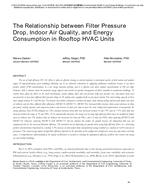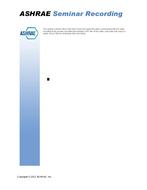This chapter describes the increasing role of combined heat and power (CHP) in sustainable design strategies, presents typical system designs, provides means and methods to understand system performance, and describes prime movers, such as reciprocating and Stirling engines, combustion and steam turbines, and fuel cells, and their characteristics for various uses. It also describes thermally activated technologies (TAT) such as heat recovery, absorption chillers, steam turbine-driven chillers, and desiccant dehumidifiers, as well as organic Rankine cycle (ORC)machines for waste heat recovery. Related issues, such as fuels, lubricants, instruments, noise, vibration, emissions, and maintenance, are discussed for each type of prime mover. Siting, interconnection, installation, and operation issues are also discussed. Thermal distribution systems are presented in Chapters 12 and 13. Additional, in-depth guidance for CHP planning and design is provided in ASHRAE’s (2015) Combined Heat and Power Design Guide.
Terminology
CHP System Concepts
Performance Parameters
Fuel-to-Power Components
Thermal-to-Power Components
Thermal-to-Thermal Components
Electrical Generators and Components
System Design
Codes and Installation
Economic Evaluation
ISBN: 978-1-947192-52-2 (for I-P versions of chapters)
ISSN: 1078-6066 (for I-P versions of chapters)
Citation: 2020 ASHRAE Handbook — HVAC Systems and Equipment
Product Details
- ISBN(s):
- 9781947192522
- Number of Pages:
- 55
- Units of Measure:
- Dual
- File Size:
- 1 file , 6 MB
- Product Code(s):
- D-S072020IP


